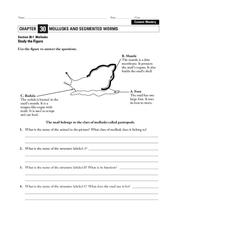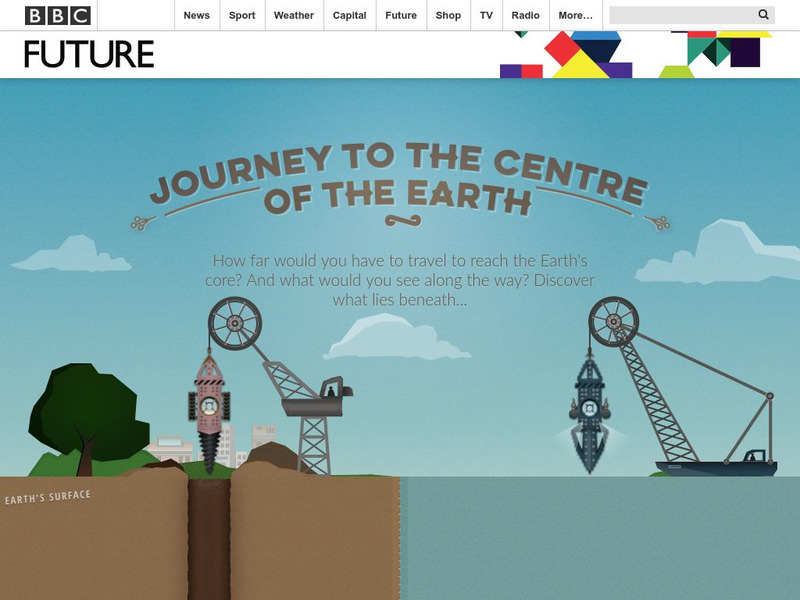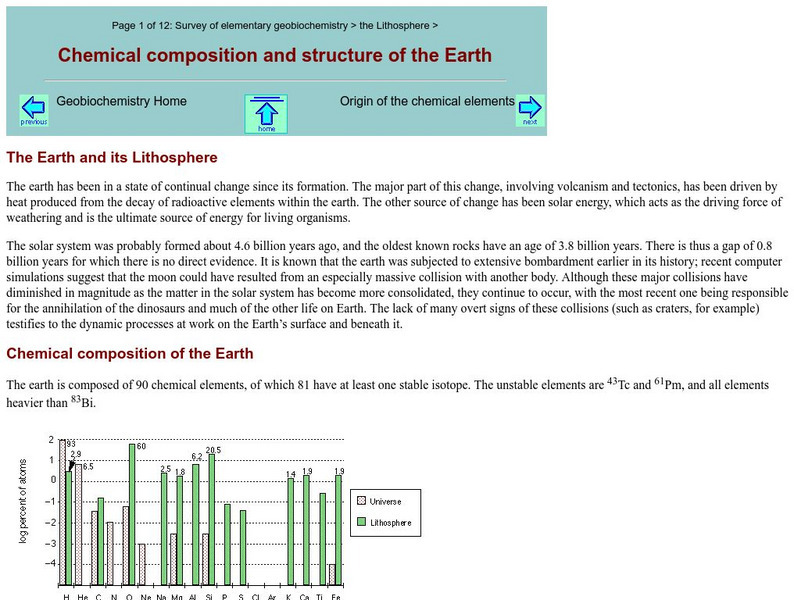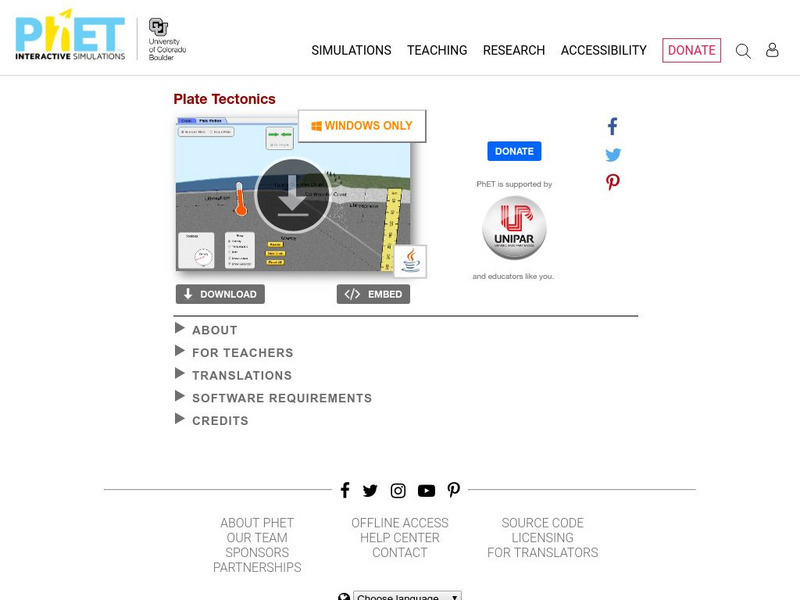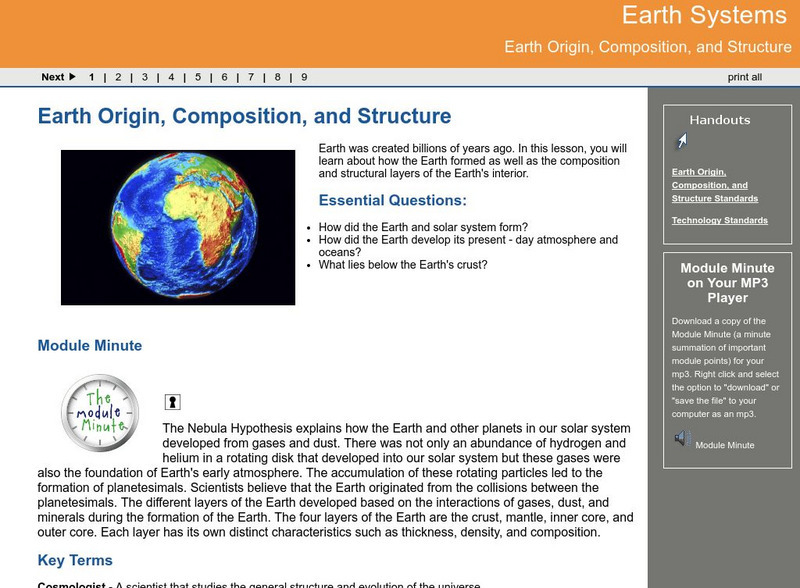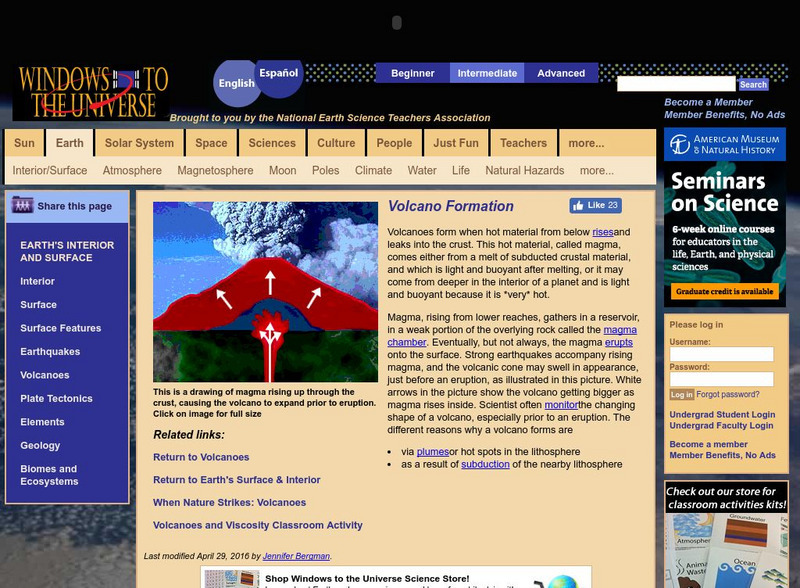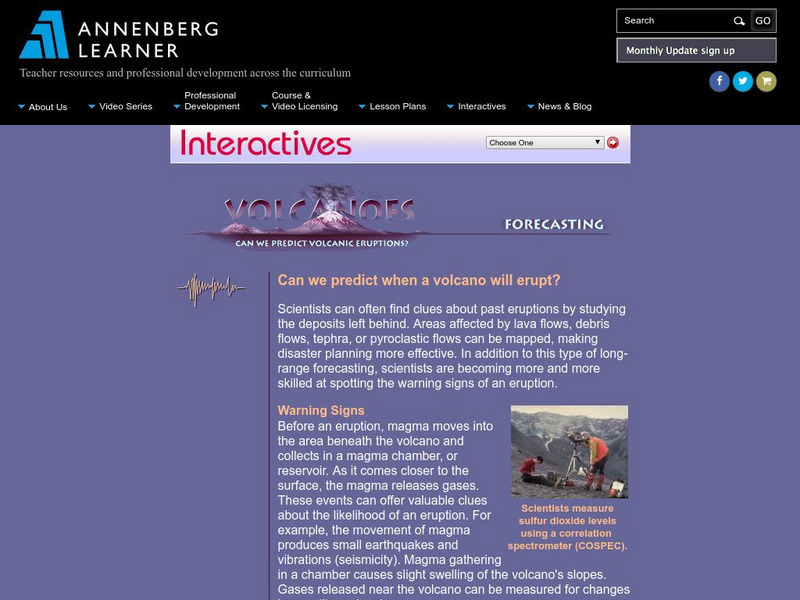Curated OER
GED Vocabulary: Earth and Space Science-Glaciers and Populations
In this earth and space science worksheet, students complete a crossword puzzle given 7 clues and a word bank on topics such as glaciers, weathering and population density.
Curated OER
Seafloor Spreading
In this seafloor spreading worksheet, students use 12 given terms to complete sentences about the layers of the Earth and the components of the layers of the Earth.
Curated OER
Mollusks
For this mollusks worksheet, high schoolers use an illustration of a snail to complete 4 short answer questions about the structure and function of the parts of gastropods.
Curated OER
Inside Earth
Students study the makeup of the earth, including the core, the mantle and the crust. They compare the temperatures and thicknesses of each layer. In pairs, they make a model of a cross-section of the earth out of modeling clay.
Curated OER
Explosive Ideas!
Students explore the layers of the Earth and the dynamic changes that they cause on Earth's surface. Volcanoes and earthquakes become the focus of the instructional activity as the Oregon State quarter and its Crater Lake images are...
Curated OER
Earth and Matter
In this matter worksheet, students review the Earth's layers, write balanced equations, and compare the properties of different elements. This worksheet has 29 fill in the blank questions.
Curated OER
How Does Earth's Crust Change?
In this Earth's crust worksheet, students will brainstorm changes that occur in the Earth's crust, mantle, and core. Students will complete this graphic organizer.
Curated OER
Mollusks and Segmented Worms
For this mollusk and segmented worm worksheet, learners will review 7 vocabulary words associated with these groups of organisms by completing a crossword puzzle.
Curated OER
Earth Science: Layers of the Earth
In this earth science worksheet, students match vocabulary words to their definition. Students identify words dealing with the layers of the earth. They match 13 words.
Curated OER
Interior of the Earth
Sixth graders identify and describe the composition and physical properties of the layers of the Earth. They also explain how scientists used the scientific process to know about the center of the Earth. Finally, 6th graders read a...
Curated OER
Musical Plates
Sixth graders engage in a study of the plates and how they are part of the formation of the ever changing landscape of planet earth. They access web sites that have applications for observation and conducting different activities. The...
Curated OER
Understanding the Layers of the Earth
Fourth graders explore the three layers of the Earth describing the composition, thickness, and temperature of each layer. Layers are compared and contrasted and data unearthed placed into graphic organizers.
BBC
Bbc Future: Journey to the Centre of the Earth
Explore deep underground and deep in the ocean to discover what lies beneath the surface. Don't stop until the final destination: the core of the Earth.
Simon Fraser University
Chem1 Virtual Textbook: Chemical Composition and Structure of the Earth
As part of the General Chemistry Virtual Textbook, this site examines a variety of topics related to the Earth. This page looks at the Earth and its lithosphere, the chemical composition of the Earth, the structure of the Earth, and more.
Purdue University
Purdue University: 3 D Earth Structure Model
Take a journey to the center of the Earth and learn about the structure, material properties, and conditions inside our planet.
University of Colorado
University of Colorado: Ph Et Interactive Simulations: Plate Tectonics
Windows only - Interact with the tectonic plates of the Earth and see how changing variables affects the plates.
Georgia Department of Education
Ga Virtual Learning: Earth Origin, Composition, and Structure
In this lesson, you will learn about how the Earth formed as well as the composition and structural layers of the Earth's interior.
Georgia Department of Education
Ga Virtual Learning: Earthquakes and the Earth's Interior
In this interactive tutorial you will learn about earthquakes and seismic waves. Learn about why and how these form and also discuss the hazards - direct and indirect - posed by earthquakes. You will then learn how our knowledge of...
Oregon State University
Osu: Volcano World: Layers of the Earth
This is a website not only on the mantle but also about all the layers of the earth.
National Earth Science Teachers Association
Windows to the Universe: Volcano Formation
Explanation of the factors that result in the formation of volcanoes, some basic but helpful animations and photographs.
Annenberg Foundation
Annenberg Learner: Volcanoes: Forecasting Eruptions
A look at some of the methods and problems with forecasting volcanic eruptions.
University of Colorado
University of Colorado: Ph Et Interactive Simulations: Plate Tectonics
Explore how plates move on the surface of the earth. Change temperature, composition, and thickness of plates. Discover how to create new mountains, volcanoes, or oceans! Java is required.
National Geographic
National Geographic: Encyclopedia: Mantle
An in-depth look at the structure and composition of Earth's mantle, with lots of visuals. Covers lithosphere, Mohorovicic discontinuity, asthenosphere, transition zone, lower mantle, the d double-prime region, mantle convection, mantle...
Other
University of Texas Arlington: Isostasy, Gravity, Magnetism, and Internal Heat
An in-depth look at how isostasy works and the processes taking place during glaciation and the melting of glaciers. Looks at gravity and the effects of density differences within the crust and mantle, and at Earth's magnetic field and...




